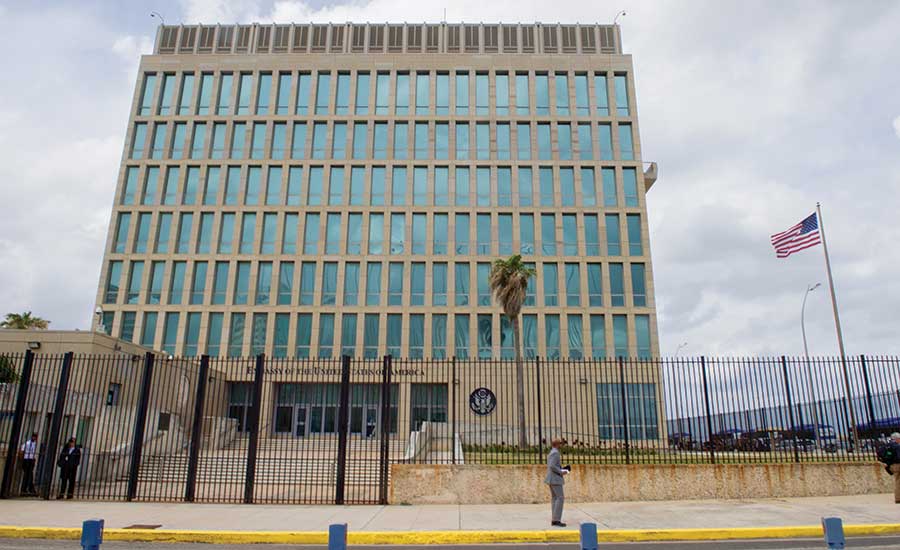Despite President Trump’s re-tightening U.S. policies toward Cuba, construction industry firms and heavy-equipment makers still hope there will be avenues to provide products and services there.
Trump’s June 16 announcement that he is “canceling the last administration’s completely one-sided deal with Cuba” seeks to undo parts of President Obama’s initiative, announced in December 2014, to reestablish links with that country. The moves include restricting travel to Cuba generally to groups, not individuals, and banning U.S. firms from working with organizations controlled by its military.
The big hurdle for U.S. firms seeking work in Cuba is the 56-year-old trade embargo. Obama’s actions didn’t affect the ban, and Trump declared, “We will enforce the embargo.” Congress would have to approve any change to the ban. Trump is keeping open the U.S. embassy in Havana, which was reopened in 2015.
Trump’s plan won’t take effect until the Treasury and Commerce departments write regulations to implement it. The White House says issuing final rules “may take several months.” One attorney with industry clients anticipates the agencies “will adopt liberal interpretations” of the Trump order. One industry source says Trump’s action complicates what was already a complex process, but adds, “there’s still hope that this will be less impactful than we had originally feared and that the door will remain ajar.”
The impact of Trump’s new policy “will take time to iron out, so we are not certain at this time how this will affect the areas in which we want to work,” says Sofia Berger, senior vice president of U.S. transportation at design firm Louis Berger and its former Latin America-Caribbean general manager. For now, she adds, the firm “will continue with our application for a permit to work in Cuba. She says “infrastructure development that involves U.S. companies opens economic opportunities” for them and for Cubans. ENR data show a total of 16 U.S. design firms and contractors reporting 2016 revenue in Cuba, although clients and project status could not be determined.
Caterpillar Inc. said that “engagement with Cuba continues to represent a strong opportunity—not just for American businesses, but to serve as a powerful tool for change. We will continue to work closely with policymakers.” Brian McGuire, Associated Equipment Distributors CEO, in a June 13 letter to Trump advocated working to “normalize” U.S.-Cuba relations. He said, “As U.S. companies sit on the sidelines, our allies actively trade with Cuba while countries such as Russia and China fill the void” left by the U.S. absence. An Association of Equipment Manufacturers spokesman said it wants continued administration dialogue with the Cuban government “for better commercial access of U.S. products and services in the Cuban market.”






